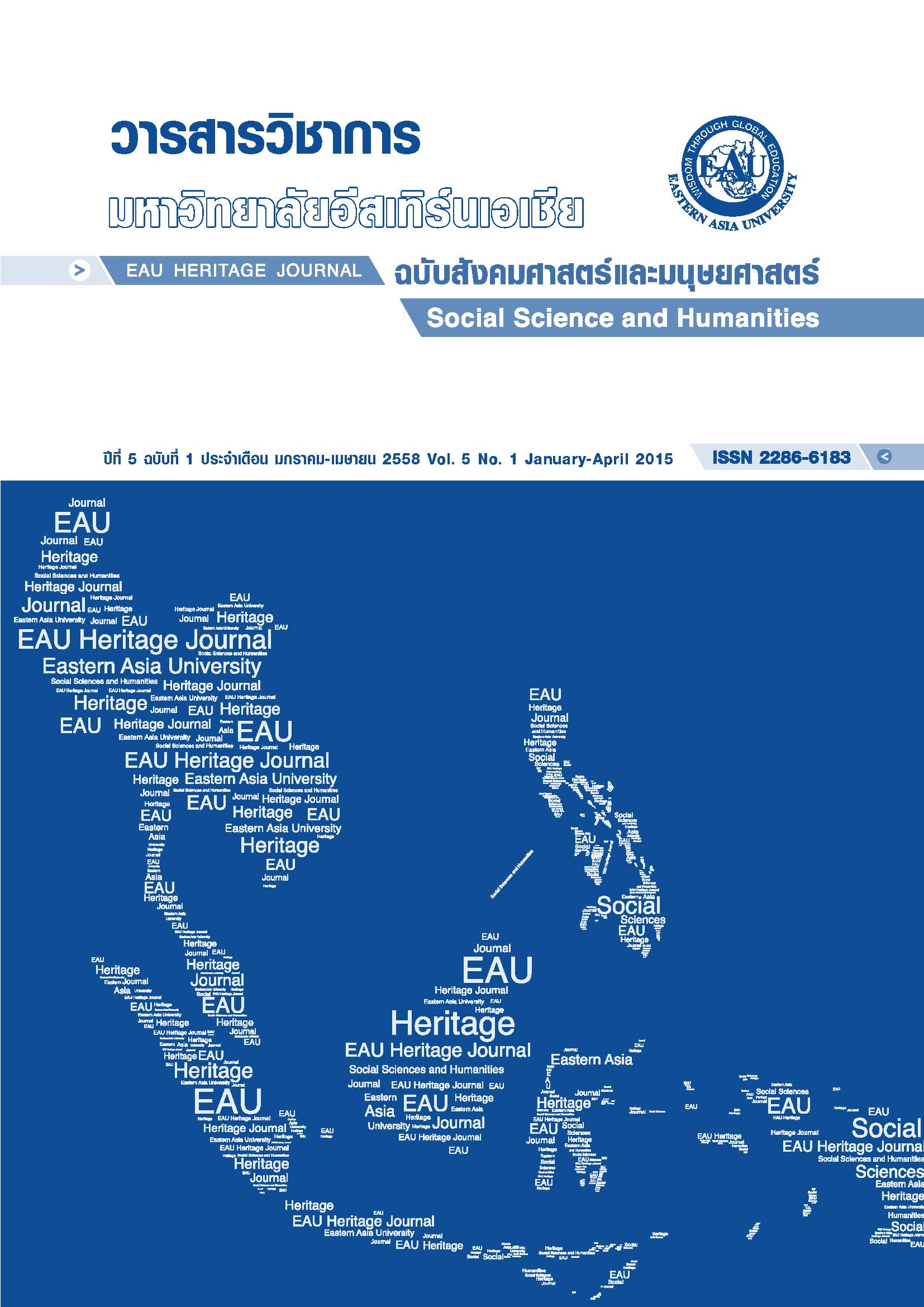การสื่อสารการเมืองและความคิดต่างบนเครือข่ายสังคมออนไลน์ในช่วงวิกฤติการเมืองไทย
Keywords:
การสื่อสารการเมือง, ความขัดแย้ง, การวิเคราะห์เนื้อหา, การแลกเปลี่ยนทางสังคมAbstract
งานศึกษาวิจัยนี้ “การสื่อสารการเมืองและความคิดต่างบนเครือข่ายสังคมออนไลน์ในช่วงวิกฤติการเมืองไทย ปี พ.ศ. 2553” ชิ้นนี้มีวัตถุประสงค์เพื่อศึกษาการแสดงออกทางการเมืองในประเด็นเกี่ยวข้องกับวิกฤติการเมืองในประเทศไทย ในช่วงระหว่างวันที่ 12 มีนาคม – 19 พฤษภาคม 2553 เป็นการศึกษาเชิงปริมาณที่ใช้ระเบียบวิธีวิจัยแบบการวิเคราะห์สารที่รวบรวมจากห้องสนทนา ราชดำเนินคาเฟ่ ใน เว็บไซต์พันทิป ผลการวิจัยพบว่าประเด็นทางการเมืองที่บล็อกเกอร์สื่อสารแลกเปลี่ยนได้แก่ประเด็นที่เกี่ยวกับ สถาบันทางการเมือง, บุคคล, เหตุการณ์, ความขัดแย้ง, การเมือง, และ ความสงบสุข ที่น่าสนใจคือผลการวิจัยพบว่าประเด็นเฉพาะที่เกี่ยวกับการแก้ไขปัญหาในช่วงวิกฤติทางการเมืองที่บล็อกเกอร์จำนวนมากสื่อสารแลกเปลี่ยนระหว่างกันเป็นเรื่องเกี่ยวกับธรรมาภิบาลReferences
Agustiana, E. T. (2005). Women as peacebuilders: The experience and efforts of women in Poso, Central Sulawesi, Indonesia. Unpublished doctoral dissertation. Ohio University, Ohio.
Arno, A. (2009). Alarming reports: Communicating conflict in the daily news. New York: Berghahn Books.
Bizzell, P. & Herzberg, B. (2001). The rhetorical tradition: Readings from classical times to the present (2nd ed.). Boston, Bedford/St. Martin's Press.
Easton, D. (1971). The political system: An inquiry into the state of political science (2nd ed.). New York: Alfred A. Knopf.
Flournoy, D. M. (2004). The broadband millennium: Communication technologies and markets. Chicago: International Engineering Consortium.
Gomez, J. (2002). Internet politics: Surveillance and intimidation in Singapore. Bangkok: Think Center.
Gordon, A. & Miller, J. L. (2005). When stereotypes collide: Race/ethnicity, gender, and video style in congressional campaigns. New York: Peter Lang.
Himes, J. S. (1980). Conflict and conflict management. Athens: The University of Georgia Press.
John, R., Palfrey, D., Jonathan, R, & Zittrain, R. (2012). Access contested: Security, identity, and resistance in Asian cyberspace. Boston: The MIT.
Louink, G. (2008). Zero comments: Blogging and critical internet culture. New York: Routledge.
Maxwell, B. (2000). How to track politics on the internet. Washington, D.C.: CY Press.
Wang, X. (2009). Seeking channels for engagement: Media use and political communication by china’s rising middle class. An International Journal, 7(1), 31-56.
Watson-Gegeo, K. A. & White, G. M. (1990). Disentangling: Conflict discourse in pacific society. CA: Stanford University.
Wikipedia. (2001). Pantip.com. Retrieved from http://en.wikipedia.org/wiki/Pantip.com





